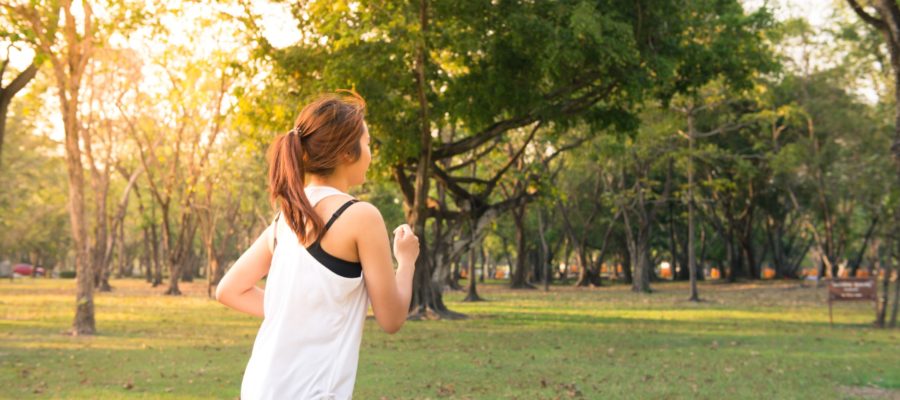After taking a break from running for several weeks, I’ve started ramping up so that I can participate in the Chase Corporate Challenge this next Thursday, along with an expected 25,000 runners in downtown Chicago. Whenever I return to regular exercise after a hiatus, I’m always struck by how hard the first couple of runs are and how quickly my muscles “remember,” allowing me to get back up to speed and even push beyond it. It’s simultaneously humbling and invigorating. Adding to all of this is the fact that I have spent most of my life declaring (almost defensively) “I am not a runner,” and I have to chuckle at the little unexpected currents running throughout life: five years ago, I’d have never believed that I could successfully run one mile, much less take part in a race. It makes me wonder what else I’ve walked around thinking is “just not me” that actually, maybe could.
When I lived in NYC and was attending classes at the Interdependence Project, Ethan Nichtern often spoke of meditation as a “compassion gym”: in the same way we go to the gym and lift weights to build stronger muscles, thus increasing our stamina and endurance for physical activity, we can turn approach meditation as a practice that increases our stamina and endurance for being generous both to ourselves and other people, strengthen the muscles required to extend genuine wishes for well-being and empathy for suffering beyond ourselves and those of our immediate circles of loved ones to strangers, even enemies. I’ve always liked this idea as it contrasts with what seems to be the prevailing attitude: compassion and empathy are often treated as fixed character traits–qualities one is born with, an innate part of one’s personality, qualities one either has or doesn’t. “Well, he’s just a nicer person than I am,” gets bandied about with a shrug, both denying the agency of the actor and letting the observer off the hook.
If we can think about compassion and empathy as qualities one is capable of cultivating and strengthening like a muscle, it actually allows for a much wider range of possibility within the human experience–for all of us. It means that no one is exempt from the responsibility of making the effort to not only treat others well but, also, to understand others, to look for themselves in the behaviors that challenge or irritate or enrage. It means saying to ourselves, just like me this person is so worried that she’ll be taken advantage of that she’s behaving defensively. If that recognition is possible for all of us if we look for it, it means that it’s never too late to “be a nice person,” even if we’ve never been seen that way, even if we’ve never seen ourselves that way. For those of us who are labeled “nice” (seemingly inherent in our very nature), it means that there is a practice that helps to examine what lies behind our niceness–is it “idiot compassion” as Chögyam Trungpa warned against, in which we enable others because we can’t bear our own discomfort with another’s suffering? is it generosity just for show? If our niceness must pass muster, must be rooted in working to see the suffering in others, to bear it with them as best we can, then it pushes us beyond the passive, superficial connotation so often associated (and embodied) in “niceness,” to be of real benefit to others while also expanding ourselves.
Beyond all of this, the other possibility that is opened up by thinking of meditation as a “compassion gym,” is that there is a refuge for each of us from the ticker tape of thoughts, worries, anxieties, pain, boredom, etc. In the same way that a good sweat can clear one’s head and realign our priorities when we get caught up in the repetitive cycle of neurotic mind, so can sitting on the cushion to focus our hearts and minds on wishing joy for ourselves, a loved one, a stranger, and enemy, all of these, and finally, all of us humble and invigorate us as we approach our day-to-day existence.






Leave a Reply
Leave a Reply
You must be logged in to post a comment.